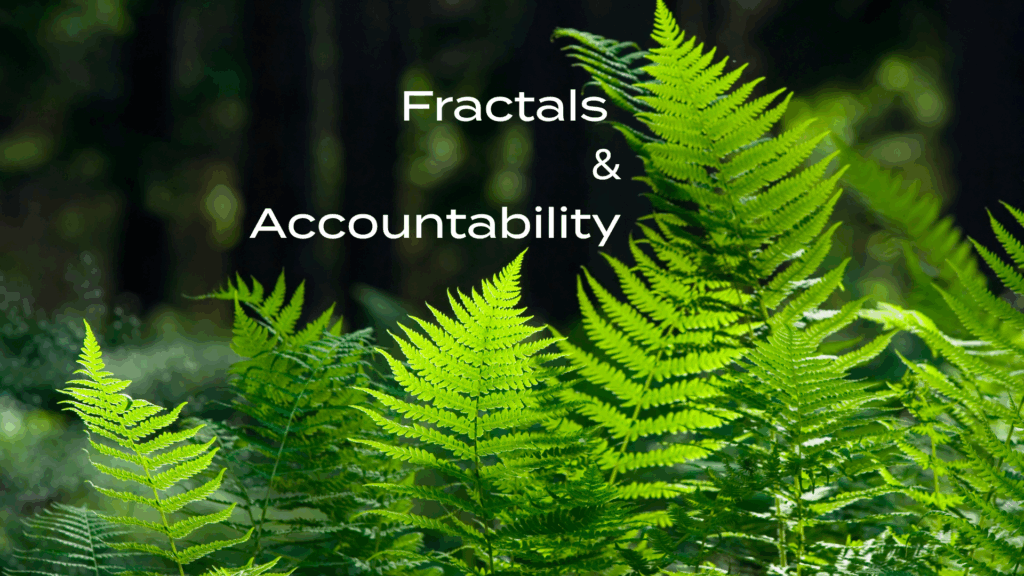Let’s Talk About Fractal Accountability—A Core Tenet of Emergent Strategy
Relationships are the unit of social change. When we practice accountability within our relationships, we get much better at being accountable to the world.
In fact, accountability is an infinitely scalable tool.
When we practice being accountable to ourselves, we develop the tools needed to be accountable to another person.
When we practice being accountable in pairs with another person, both parties increase our ability to be accountable in small groups.
When we get better at accountability in small groups, every member of that group is better prepared to practice accountability in groups small and large, and within our local communities.
And so on and so forth, until we scale so far as to understand how to practice accountability at a global scale.
In their teachings on emergent strategies, adrienne maree brown and other Black feminist authors discuss fractals as a central tenet of organizing—fractals being the relationship between small and large. As amb reminds us, “small is all.”
This has major implications for social movements. In our community organizing circles, we talk endlessly about our desire to be accountable for changing major death-dealing institutions like ICE, the prison-industrial complex, and imperialism. We are taught to view this as “the work.” By extension, we are taught to view anything else—in particular interpersonal conflict and harm—at best as separate from “the work,” and at worst as distractions from “the work.”

This is not only wrong, it is dangerous.
How can we possibly understand how to undo and replace global death-dealing institutions if we have no idea how to effectively address harm in our own communities?
Perhaps more urgently, what message do we send to members of our community when they confide in us that they have experienced harm, and we fail to appropriately intervene?
The tools we use to respond to domestic violence within our organizing communities are the very same tools required of us to build systems that replace policing and the carceral state. The tools we use to ensure our unhoused neighbors are fed are the very same tools we need to support wealth distribution to folks experiencing poverty worldwide.
These are just a few examples; there are countless.

This leads us into a trap. It is mission critical that we alter the path we’re on if we are to attain a critical mass of organizers who have the skillset needed to enact radical transformation. People leave social movements all the time because we experience harm no one seems to have the time nor desire to address. People are told “that’s not an organizing problem” as if organizing does not depend entirely on our ability to trust each other and grow in relationships, especially through conflict.
When we become laser-focused on changing the world, but avoid practicing accountability to our communities, we sacrifice our ability to make any meaningful change.
This is not an original thought; in The Revolution Starts at Home, authors highlight Project NIA’s Building Accountable Communities Project. The argument underscoring this project is that the reason community accountability processes so often go badly is because many of us neglect to build accountable communities—communities capable of transforming harm and violence into social change.They argue that building such communities is a precursor to truly practicing accountability.

I argue that this work is urgent, and that most if not all organizers need to focus far more attention on building accountable local communities than we currently do.
I write this not as someone who is absolved from this work. On the contrary, I feel urgently tasked with building accountable communities myself. I also write this as one of thousands of organizers who has felt alienated from local organizing after witnessing how unskilled many of us are at holding our comrades through accountability.
This work is urgent, it is necessary, it is life-saving, and it is the work. It is a vital component of building the transformative, liberated futures we want, deserve, and need.
As I embark deeper into this exploration of accountability, I’ll continue posting thoughts to my blog. Stay tuned, and share your ideas below. Explore the Emergent Strategy Series at your local bookstore, or shop on Bookshop for all titles.

